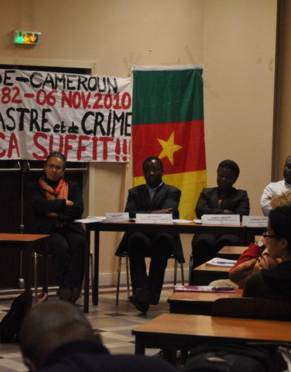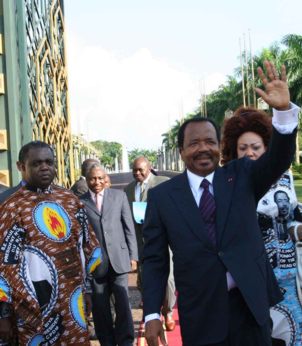|
Cameroon Politics | Human rights Cameroon plans "Egypt-like" protests
"After Egypt; Cameroon next stop," has been a message spreading throughout the internet during the last week, with some calling for "a popular pacific revolution," some for a general strike and others for "Paul Biya to be sent to prison."
Meanwhile, Mboua Massock has developed into a spokesperson of the planned protests; also according to Minister Bokary. Mr Massock leads a small opposition party and is seen as an eccentric activist. He is calling for a peaceful, "large resistance march" on 23 February, although urging Cameroonians to recall the violent repression of the 23 February 2008 protests. Activist Ndzana Seme, on a website run by exiled Cameroonians, is warning protesters against the army and militias by the Beti people, the most loyal to President Biya. But "Yaoundé will fall into the hands of the people and then Paul Biya will fall," the activist tries to encourage Cameroonian protesters, with reference to the revolutions in Tunisia and Egypt. Cameroon's more established opposition and civil society organisations however are shyer. Even independent Cameroonian media do not report on the calls for mass protest. Long-time opposition leader John Fru Ndi has made no statement on the planned protests; neither have trade unions nor human rights groups. For now, the opposition rather concentrates on preparing for the upcoming elections later this year, although it has never been given a fair chance to win elections in the past. But international analysts have pointed to the risk of far-reaching unrest in Cameroon for years. Only last year, the renowned think-tank International Crisis Group (ICG) warned about the high probability of unrest before the 2011 election due to poor governance. "The threat really comes from the frustration of the population, both for economic reasons and also for political reasons," the ICG's Richard Moncrieff said in June 2010. "The very poor governance, the widespread corruption, the politicisation of the justice system, the politicisation of the electoral system is in fact a danger for the country and could eventually lead to conflict," he added. By staff writers © afrol News - Create an e-mail alert for Cameroon news - Create an e-mail alert for Politics news - Create an e-mail alert for Human rights news
On the Afrol News front page now
|
front page
| news
| countries
| archive
| currencies
| news alerts login
| about afrol News
| contact
| advertise
| español
©
afrol News.
Reproducing or buying afrol News' articles.
You can contact us at mail@afrol.com









